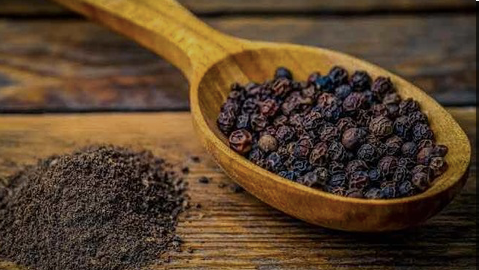
Black pepper is known as “the king of spices” and it is among the most widespread and most used spice in various food preparations for its taste and carminative properties. Black pepper has been reported to possess anti-cancer, anti-microbial, anti-inflammatory and anti-glycant properties. Scientists from the National Institute of Nutrition in India (Saraswat, Reddy, Muthenna, & Reddy, 2009) evaluated the ability of black pepper extracts to prevent the accumulation of AGEs and found that black pepper can effectively block complications from diabetes. Piperine, the active phenolic compound in black pepper extract, was studied to determine its glucose regulatory efficacy in alloxan-induced diabetic mice. It was observed that subacute administration of piperine at dose of 20 mg/kg significantly lowered blood glucose concentrations, whereas acute administration at high doses (40 mg/kg) raised blood glucose. Therefore, further investigations are necessary to consider black pepper as a prospective anti-diabetic agent at an appropriate dosage.
Although black pepper has shown anti-glycant property in vitro and anti-hyperglycemic activity in animal studies, it has not yet shown significant anti-diabetic effects in diabetic patients. Nonetheless, black pepper might enhance the anti-diabetic and antioxidant properties of other spices due to the potential synergistic effects. For example, the combination of black pepper and turmeric powder led to an increase in antioxidant activity and thus the decrease in lipid peroxidation during food preparation. The decrease in lipid peroxidation reduced postprandial changes such as oxidative damage and inflammatory processes and might be beneficial in reducing the development of DM. Since piperine strongly enhances the bioavailability of phytochemicals, the potential synergistic effects of black pepper on the anti-diabetic activity of other spices deserve further investigation.